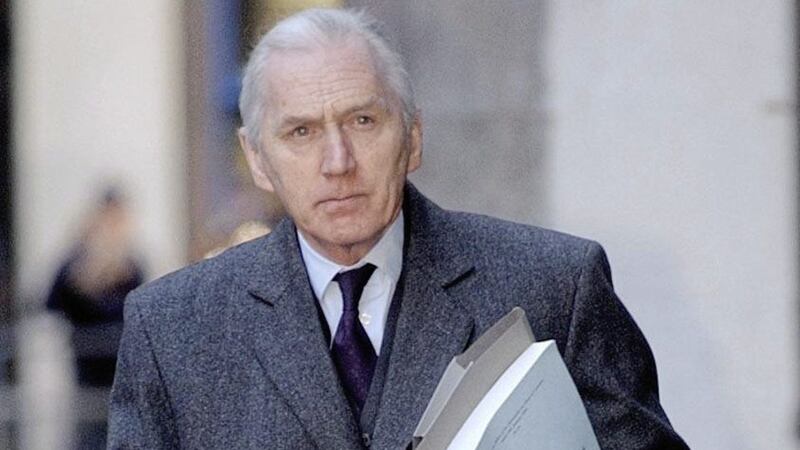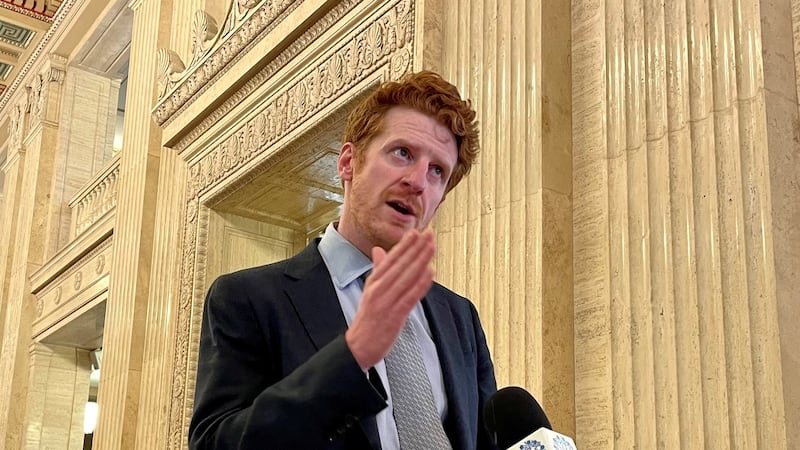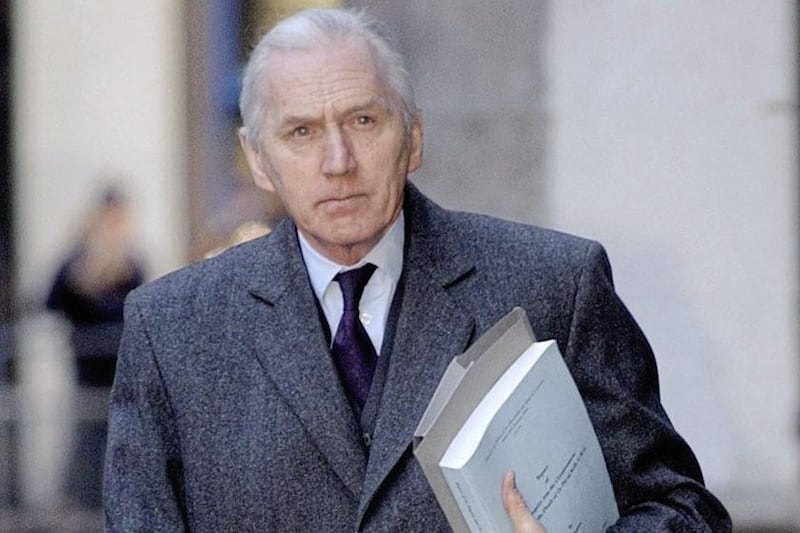HIGH profile law lord and former Lord Chief Justice of Northern Ireland, Baron Brian Hutton, has died at the age of 89.
Once top of the IRA's most wanted list, he was born in north Belfast in 1931.
His family lived on North Circular Road, His father, a senior rail executive sent him to Brackenber House preparatory school in south Belfast.
He later went to school in Shrewsbury and to Balliol College, Oxford before he studied law at Queen’s University Belfast. He was called to the Northern Ireland bar in 1954.
Appointed junior counsel to the attorney-general in 1969, one of his first tasks was to prosecute Bernadette Devlin, the then Independent MP for Mid-Ulster, charged in connection with riots in the Bogside.
Reports at the time said he appeared "very uncomfortable" as she mocked the charges and the mandatory six-month sentence.
He was on the British defence team at the European Court of Human Rights when Britain was found guilty of ill-treating republican internees in 1971.
Appointed a judge in 1979, he was given the task of bringing unionist-controlled councils to book for adjourning meetings in protest at the Anglo-Irish agreement.
In 1984, sitting as a Diplock judge he sentenced 10 men to 1,001 years in prison on the word of "supergrass" informer Robert Quigley. In 1986, he acquitted an RUC reservist, Nigel Hegarty, with unlawfully killing John Downes with a plastic bullet at a rally in west Belfast.
He also acquitted two Royal Marines charged with murdering republican Fergal Caraher in a shooting incident at Cullyhanna in 1990.
Former Sinn Féin director of publicity Danny Morrison said he and Lord Hutton "were once very close" adding "I sat about 10 feet from him in the witness box while he quizzed me on charges of conspiracy to murder, IRA membership and kidnapping".
"He eventually sentenced me to eight years in jail on the testimony of a police informer I had never met.
"Although in the Belfast high court Hutton occasionally acquitted republicans and dismissed the appeals of soldiers, nationalists generally considered him a hanging judge and the guardian angel of soldiers and police officers."
Mr Morrison's conviction was later quashed.
His appointment as Lord Chief Justice for Northern Ireland in 1988 was controversial. Lord Justice Turlough O’Donnell, a Catholic, was more senior.
In 1994, he dismissed Private Lee Clegg's first appeal against his controversial murder conviction. Clegg had been convicted in 1993 of murdering Martin Peake (17) and Karen Reilly (18) in west Belfast three years earlier. There was violence on the streets when in 1995 Clegg was released from jail early after his case was reviewed. In 1998, his conviction was quashed and he was cleared of murder at a second trial.
Lord Hutton also represented the Ministry of Defence at the inquest into the murder of civil rights marchers on Bloody Sunday in Derry.
He publicly reprimanded Major Hubert O'Neil, the coroner presiding over the inquest, when the coroner accused the British Army of murder, saying this contradicted the findings of the Widgery Tribunal.
Lord Saville's inquiry into the events in Derry in 1972, found that none of the 26 unarmed civilians, or 13 people who died on that day posed any threat. A 14th person died months later.
However, his most high profile role was that of heading the investigation into the sudden and controversial death of weapons expert Dr David Kelly.
Dr Kelly was thrust into the media spotlight in 2003 after being identified in newspapers as the man the government believed was the source for a controversial BBC report on Iraq. Dr Kelly gave evidence to MPs' committees in which he said he did not believe he was the main source of the story.
Two days after his testimony, the 59-year-old was found dead in woodland.
Then Prime Minister Tony Blair asked Lord Hutton to conduct an urgent investigation into the circumstances surrounding the death.
The senior judge rejected calls from some MPs to widen the scope of the investigation to look at how the government made the case for war in Iraq.
Lord Hutton released his findings in January 2004, reporting that the scientist had slashed his wrist with a gardening knife. However, this was disputed as impossible by some medical professionals and there remains calls for a full inquest.
A spokesperson for the Bar of Northern Ireland said they were "deeply saddened to learn of the passing of the Rt Hon Lord Hutton, PC, QC".
"He was rightly described by Lord Lester as being “in that special category of judges from Northern Ireland who are especially brave and noted for their fearless independence”.
"He will be greatly missed by the many colleagues at the Bar of Northern Ireland who continue to hold him in the highest esteem."



